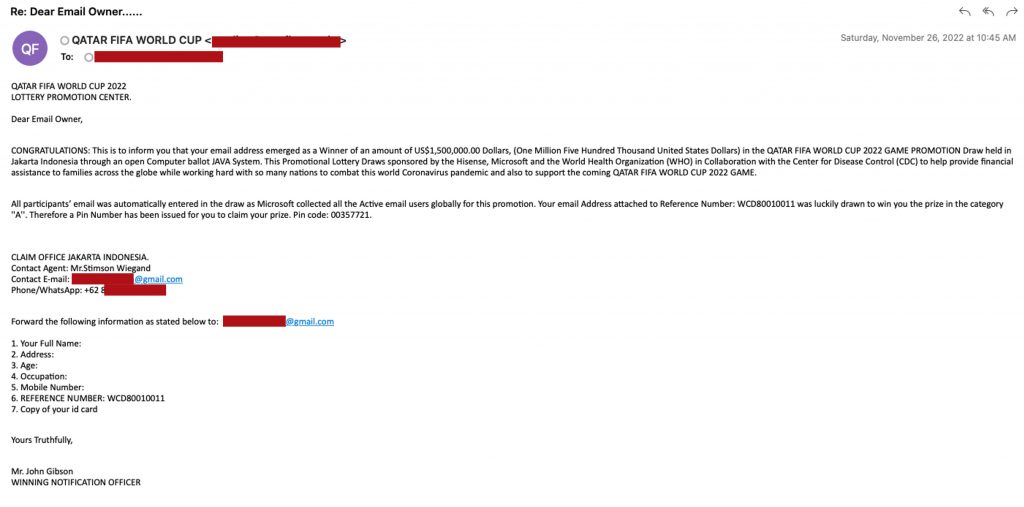With the US having gotten through to the knockout stages and the abundance of upsets that have happened, it’s been a great World Cup so far. However, the scammers are up to their usual tricks and looking to scam some unsuspecting people out of lots of valuable personal information with this World Cup-themed phishing scam. Read on to learn everything you need to know.
World Cup 2022 Lottery Scam Explained
This scam’s tactics are not too dissimilar to what we regularly see in phishing scams. This time around, the scammers have been sending out emails to lots of people, claiming that they’ve won $1.5 million in a World Cup lottery prize draw sponsored by Microsoft, WHO (the World Health Organization), and Chinese electronics manufacturer Hisense. Of course, all that is nonsense — there is no prize and those companies have nothing to do with these scam emails.

As you can see from the screenshot above, the email requests lots of personal information. By tricking people into thinking they’ve won a fortune, the scammers hope that victims will be comfortable sending them their full name, address, age, occupation, mobile number, and even a copy of their ID card.
It goes without saying that a scammer having all this information is bad news. Here are just a few things they would love to do with your personal information:
- Take out new credit cards under your name
- Steal your tax refund
- Take out money from your banking or investment accounts
- Open new utility or telecom accounts under your name
- Get medical treatment under your name
If you come across this World Cup lottery scam email or one similar, don’t take the bait. Here are some common signs of a scam email:
- It claims you’ve won a prize or gift
- The sender’s email address is suspicious
- It requests lots of personal information
- Use of urgent language — it says there is a serious issue with your bank account, for example.
How Did the Scammers Get My Info?
If you’re wondering how the scammers were even able to get your email address in the first place, you’re not alone. They will most often get it from underground internet forums or the dark web — two places that are hotbeds for stolen/leaked data.
To see if your email has been compromised, use the tool below.
If you want a way to check if your personal data — email addresses, bank account numbers, Social Security number, passport number, and more — have been leaked online, consider checking out Trend Micro ID Security. The app will scan the internet and the dark web 24/7 for your data so if it’s ever leaked, you’ll know about it! Click the button below to learn more and claim your 30-day free trial today.
